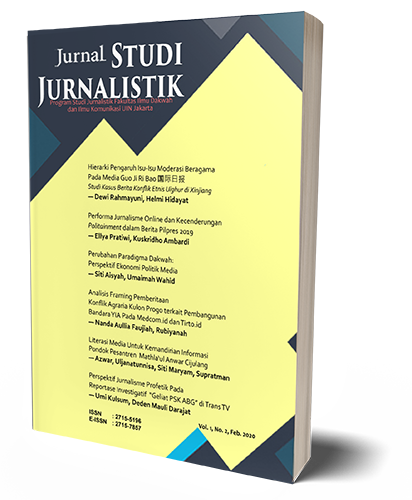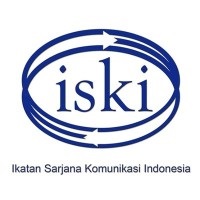Employability of West Visayas State University Communication Graduates Philippines
DOI:
https://doi.org/10.15408/jsj.v5i1.31618Keywords:
communication, employability, tracer studyAbstract
To cope with the demands of globalization, communication graduates must be provided with appropriate knowledge and skills needed in the industry. To find out how WVSU communication graduates perform in employment, this tracer study was conducted. This study looked into the employment profile of the Bachelor in Broadcasting, Bachelor in Journalism, and Bachelor of Science in Development Communication graduates of 2011-2013. It also traced the transition to employment of the graduates, their level of satisfaction towards the competencies acquired and the significance of the curriculum in the acquisition of knowledge and skills. This descriptive survey utilized a questionnaire adapted from the Graduate Tracer Study (GTS) instrument used by the Universities and Colleges in the Philippines. Findings revealed that most of the graduates are females, single, and permanently employed. Graduates considered their degree programs relevant to their jobs and they were satisfied with the knowledge and skill they acquired from their degrees. The result of the tracer study is a proof that the three curricular programs play a big role in the lives of the graduates especially in acquiring several skills and knowledge needed by a professional to compete in the challenging world of employment.
References
Debrah, Y. A. and Smith, I. (Ed.). (2002). Globalization, employment and the workplace. London:Routledge.
De Guzman, A. and de Castro, B. (2008). Employment and employability profile of a select group of Filipino college graduates. KEDI Journal of Education Policy 5:1, 63-81. ttp://eng.kedi.re.kr.
Emenyeonu, N. (1991). Motivations for choice ofcourse and career preferences of Nigerian female students: Implicatios for the status of media women in a developing nation. Africa Media Review vol. 5 no. 2. African Council for Communication Education. http://citeseerx.ist.psu.edu/viewdoc/download?doi=10.1.1.608.3664&rep=rep1&type=pdf
Fallows, S. & Steven. C. (2000). Building employability skills into the higher education curriculum: a university-wide initiative. Education +Training. Vol.42 Iss:2, pp.75-83.
Hager, P., S. Holland and Beckett, D. (2002). Enhancing the learning and employability of graduates: the role of generic skills. Business/Higher Education Round Table.
Hervish and F. Charlotte. (2011). Who speaks for me? Ending child marriage. Population Reference Bureau. http://www.prb.org/pdf11/ ending-child-marriage.pdf .
Journal of Mass Communications, Volume 10, No. 1, ISSN 00019-7060, WVSU
Kirby, P. et al. (2000). Ministerial Review of Post Compulsory Education and Training Pathways in Victoria: Final Report. Melbourne: Department of Education, Employment and Training.
Lee, S. and Eyraud, F. (Eds.). (2008). Globalization, flexibilization and working conditions in Asia and the Pacific. Geneva: International Labor Office and Chandos Publishing (Oxford) Limited.
Lowden, K., et al. (2011). Employers’ perception of the employability skills of new graduates. University of Glasgow SCRE Centre and Edge Foundation.
Maslog, C. (2007). Philippine communication today. Manila: New Day Publishers.
National Communication Association. (2011). Pathways to communication careers in the 21st century (8th Ed.). Washington, D.C.: National Communication Association. https://samantha williamsblog.files.wordpress.com/2014/11/pathways_report.pdf
Robles, C. (2010). Tracer Study of 2007-2008 Bachelor in Broadcasting Graduates.
Schomburg, H. (2003). Handbook for Graduate Tracer Studies. Centre for Research on Higher Education and Work, University of Kassel, Germany. http://www.qtafi.de/handbook_v2.pdf.
Spence, M. (2011). The impact of globalization on income and employment. Foreign Affairs, 90(4), 28–41. http://doi.org/10.1016/S0165-1765(02)00229-X.
Sibal, J. V. (2002). Measures of economic development: How the Philippines fares. Philippine Journal of Labor and Industrial Relations, Quezon City: UP SOLAIR.
The Council of Economic Advisers (2014). 15 Economic facts about millennials. Executive Office of the President of the United States. https://www.whitehouse.gov/sites/default/files/docs/millennials_report.pdf.
The International Bank for Reconstruction and Development (2002). Globalization, growth and poverty. The World Bank and Oxford University Press.
The National Marriage Project at the University of Virginia (2013). Knot yet: The benefits and costs of delayed marriage in America. The National Campaign to Prevent Teen and Unplanned Pregnancy, The Relate Institute. http://nationalmarriageproject.org/wp-content/uploads/2013/03/KnotYet-FinalForWeb.pdf.
Utari, P. and Nilan, P. (2004). The Lucky Few: Female graduates of communication Studies in the Indonesian Media Industry. Asia Pacific Media Educator 15, 63-80. http://ro.uow.edu.au/apme/vol1/iss15/6.
Verona, L. J. (2011). A Tracer Study of the Employment Status of PUPQC AY 2004-2005. https://www.scribd.com/doc/50720521/A-Tracer-Study-of-the-Employment-Status-of-PUPQC-AY-2004-2005.
Viajar, V. D. Q. (2009). Implications of economic globalization on labor market policies: A comparative study of the Philippines and Indonesia. Philippine Political Science Journal. http://doi.org/10.1080/01154451.2009.9723518.
Yorke, M. and Knight, P. (2006). Embedding employability into curriculum. Retrieved from http://www.worc.ac.uk/edu/1117.htm.















